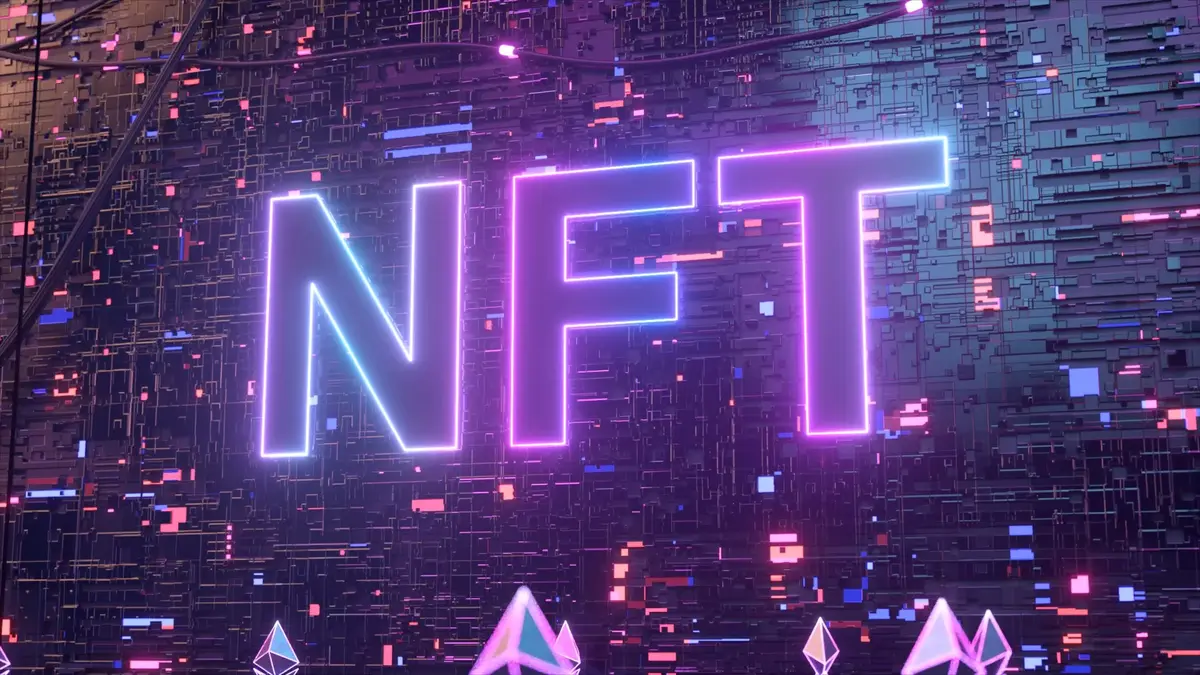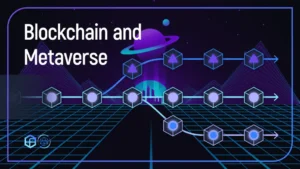The world is changing rapidly, and NFTs (non-fungible tokens) are at the heart of this digital revolution. NFTs have become a hot topic in the metaverse, changing the meaning of owning things, your identity, and how you interact with others in society. Imagine a virtual world where your assets are more than just pretty pictures; they have real-world uses and benefits. That’s what NFTs do. These digital assets are no longer just buzzwords; they’re the key to monetizing virtual creations, access to special experiences, and assets that increase in value.
As the lines between the real and digital worlds blur, NFTs are set to become a key player in the future of the Internet of Everything. With businesses, artists, and gamers already using these tokens, it’s clear we’re just getting started. In this article, we’ll dive deeper into how NFTs can truly empower people in the metaverse with unprecedented power and benefits.
How NFTs Are Going from Art to Utility:
When NFTs first emerged, they were considered digital art, along with quirky characters, viral animations, and blockchain poker. But that was just the beginning. In recent years, NFTs have evolved from simple digital collectibles to commodities that can be used in the real world. Think NFTs that provide access to events, virtual properties, the ability to run communities, and loyalty programs that reward people. This evolution is reflected in the transformation from novelty to necessity.
NFTs are no longer just pretty things in your wallet; they are now practical tools in digital communities. They are not just cosmetic; they are also being used for businesses, games, and social networks in the metaverse. This is changing the perception of digital assets, and NFTs are no longer just speculative tokens. They are now the basis of a new virtual economy that gives people more ownership by giving them control, participation, and commercial opportunities.
NFTs: As a Digital Identity in the Metaverse
In the metaverse, your digital identity is more than just your username and personal photo. NFTs are an important part of that identity. In a world where everyone looks, acts, and owns entirely virtual items, NFTs are used to prove ownership and authenticity. Owning an NFT allows you to stand out with a unique asset that can be verified on the blockchain. Whether it’s a digital fashion item for your avatar or a custom-designed virtual home, this is true.
These things become symbols of class, individuality, and belonging, and they’re not limited to appearance. Some NFTs are like badges of honor: proof of achievement, participation in special events, or even membership in a specific group or platform. As the metaverse grows, digital identity becomes increasingly important. NFTs offer users a flexible, secure, and personalized way to manage their identity, giving them real control over how they’re viewed and perceived in the digital world.
The Role of NFTs in Virtual Real Estate:
The next big trend in real estate is virtual land, and NFTs are all about ownership. The value and ownership of digital land are backed by NFTs, as demonstrated by platforms like Decentraland, The Sandbox, and Otherside. In the metaverse, every piece of land is represented by an NFT. This makes buying, selling, or renting land safe and secure. But that’s not all. Virtual businesses, concerts, games, and social events can all be built on these lands, and they will all generate profits or increase in value over time.
Investors and artists alike are drawn to virtual real estate because it can be used to build, monetize, and even resell. It’s a bit like owning a home in a virtual New York or Tokyo. Location and development space are important, just like in the real world, and NFTs are essential to gaining access to these environments. As more people invest time and money into these virtual spaces, the demand for and value of NFT-backed virtual land will only continue to increase.
NFTs Enable the “Play to Earn” Gaming Model:
NFTs are reviving the concepts of ownership and payment and changing the way games are played. In traditional games, players can spend hundreds of hours collecting items stored in the game world. The rise of NFTs changes all that, transforming in-game items into valuable items that can be traded and owned. For example, in-game properties, swords, armor, characters, and even land can be sold or given away.
The “Play to Earn” (P2E) model has become popular, where players can earn money in the real world simply by playing the game and making progress. Games like Illuvium, Axie Infinity, and Gods Unchained are leading the way in this change. This new model ensures a fairer distribution of gaming revenue and allows players worldwide to participate in the global marketplace. Games are no longer just for fun—NFTs combine entertainment and commerce to make gaming a lifestyle.
Conclusion:
NFTs are more than just a pretty picture; they are the key to a future where digital rights are essential. They provide power, uniqueness, and value in the metaverse, and they are not just pretty; they are also economically viable. NFTs create a new dimension of the web, where people don’t just browse or scroll but live and earn. They change people’s identities, giving them control over virtual land, empowering gamers, and giving them access to exclusive experiences. As the number of platforms that accept NFTs increases, they will become more powerful, opening up new possibilities limited only by our imagination. The metaverse is no longer a far-fetched dream; it is becoming a reality, and NFTs are essential to making it a reality.
FAQs:
1. What exactly does an NFT mean in the metaverse?
In the metaverse, an NFT is a unique digital product that proves ownership or grants access to a special item, land, identity, or event in a virtual world.
2. How exactly can NFTs help you today?
NFTs give virtual items real value by turning them into assets that can be owned, traded, or sold, such as real estate, game items, or special memberships.
3. Can you make money with NFTs?
Yes, many NFT-based games allow players to earn coins or rare items that can be sold for real money. This means that they can be used to make money.
4. Do NFTs work in the real world?
Of course. NFTs are also used in the real world to buy tickets, prove identity, join groups, and even own real works of art.
5. Does it cost a lot to get started with NFTs in the metaverse?
Not always. Some NFTs are expensive, but many platforms offer affordable options for newcomers. In some games or communities, you can even get NFTs without paying anything up front.




